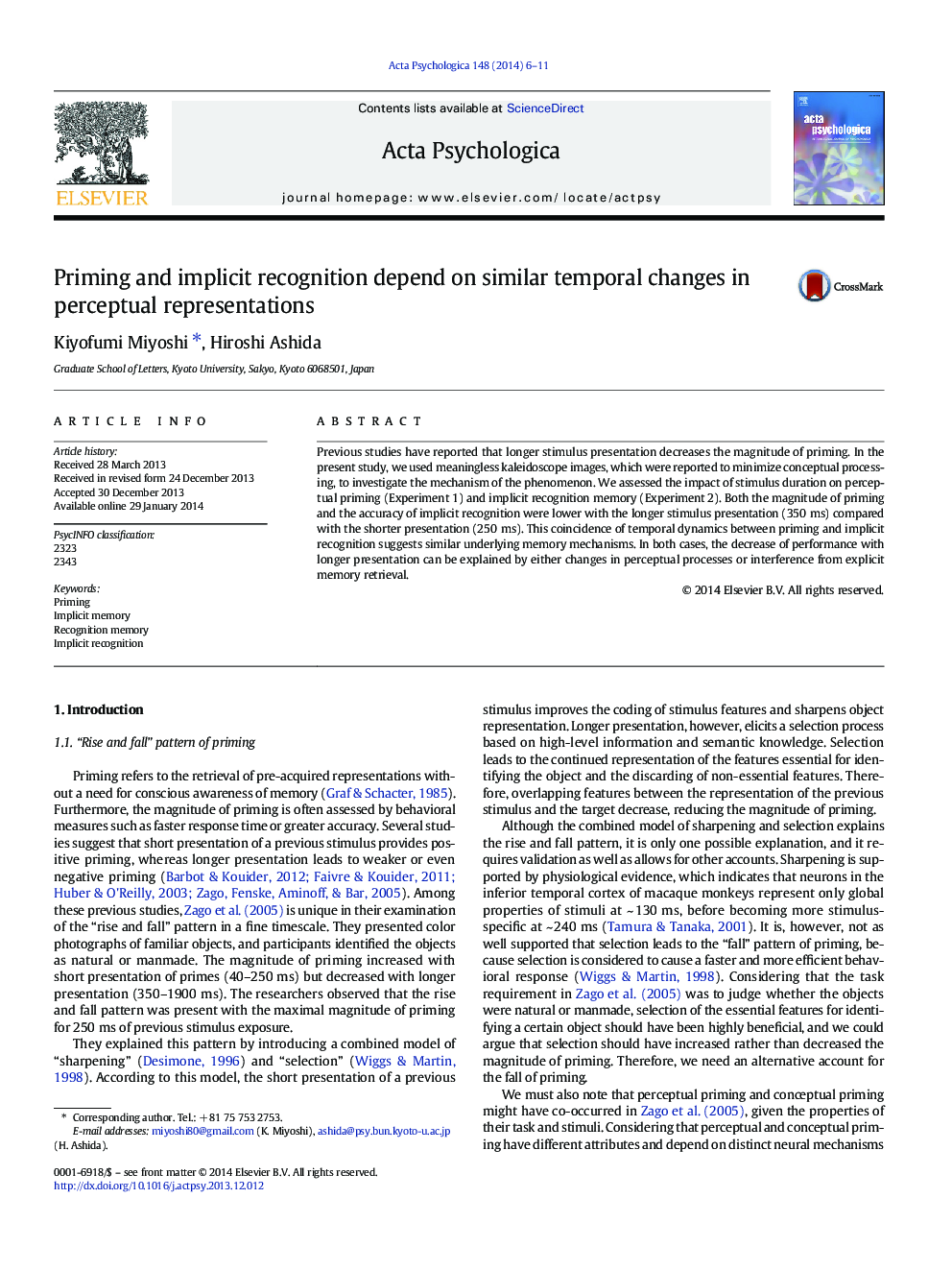| Article ID | Journal | Published Year | Pages | File Type |
|---|---|---|---|---|
| 7277733 | Acta Psychologica | 2014 | 6 Pages |
Abstract
Previous studies have reported that longer stimulus presentation decreases the magnitude of priming. In the present study, we used meaningless kaleidoscope images, which were reported to minimize conceptual processing, to investigate the mechanism of the phenomenon. We assessed the impact of stimulus duration on perceptual priming (Experiment 1) and implicit recognition memory (Experiment 2). Both the magnitude of priming and the accuracy of implicit recognition were lower with the longer stimulus presentation (350Â ms) compared with the shorter presentation (250Â ms). This coincidence of temporal dynamics between priming and implicit recognition suggests similar underlying memory mechanisms. In both cases, the decrease of performance with longer presentation can be explained by either changes in perceptual processes or interference from explicit memory retrieval.
Related Topics
Life Sciences
Neuroscience
Cognitive Neuroscience
Authors
Kiyofumi Miyoshi, Hiroshi Ashida,
